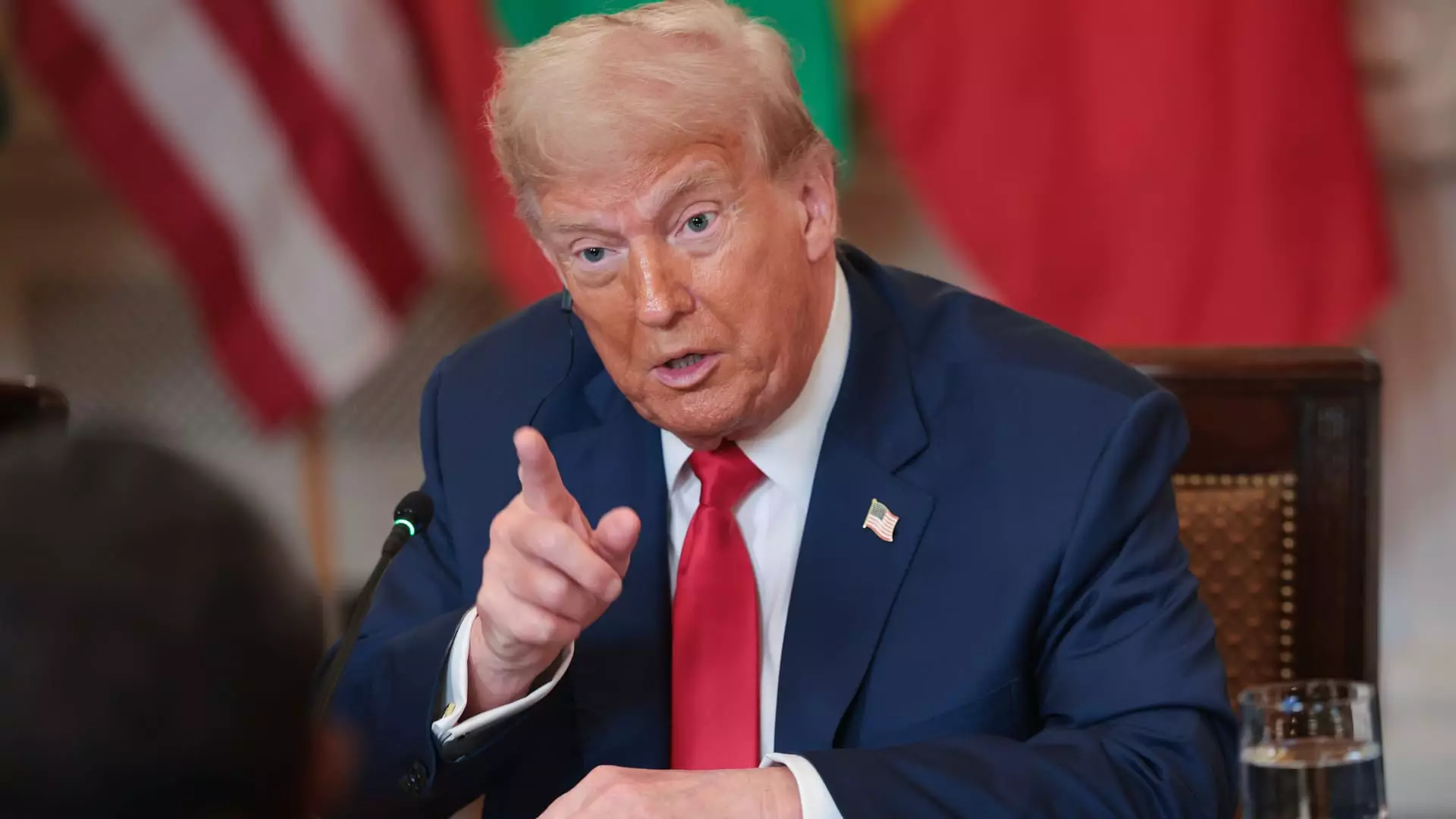The recent announcement by former President Donald Trump to impose a staggering 50% tariff on Brazilian imports exposes a dangerous shift from strategic economic diplomacy toward reckless economic coercion. Framing tariffs as retaliation for Brazil’s internal political prosecutions, Trump’s rhetoric turns what should be pragmatic trade policy into a tool of political retribution. Instead of engaging in constructive dialogue or addressing genuine trade issues with mutual respect, his approach seems designed to punish a sovereign nation for its internal legal proceedings and political choices, setting a troubling precedent for international relations.
This heavy-handed tactic ignores the complexities of bilateral trade balances and diplomatic negotiations. The U.S.-Brazil relationship, characterized by a trade surplus of approximately $7.4 billion in 2024, is fundamentally healthier than Trump’s narrative suggests. Reacting with punitive tariffs based on political disputes rather than economic realities risks alienating allies and undermining the credibility of the United States on the world stage. It signals to other nations that disagreements rooted in internal politics might justify economic sanctions, thereby injecting instability and unpredictability into global markets.
Furthermore, the choice to escalate tariffs so dramatically goes beyond traditional trade disputes. It suggests an underlying desire to wield economic measures as leverage in ideological battles over internal political proceedings, such as Brazil’s judicial treatment of Bolsonaro. Such unilateral actions erode the foundational principle of mutual benefit that underpins global trade, replacing it with a politically motivated ‘my way or the highway’ approach that jeopardizes long-term cooperation.
Undermining Global Norms and Democratic Values
Trump’s framing of Brazil’s legal investigations and political developments as “an international disgrace” and “witch hunts” reveals a disturbing tendency to conflate domestic political conflicts with international diplomacy. His public denunciation reflects not a nuanced understanding of Brazil’s sovereignty but a partisan narrative designed to dismiss legitimate judicial processes. Equating internal legal proceedings with an attack on free speech or elections—despite Brazil’s constitutional commitment to democracy—signifies a dangerous undermining of democratic norms worldwide.
This narrative echoes Trump’s past sentiments—painting legal investigations into political figures as fabrications or conspiracies. Such rhetoric fosters an environment where countries might feel justified in ignoring international legal standards or manipulating trade policies based on their internal politics. It promotes the idea that justice or legality can be dismissed or disregarded if it conflicts with the political interests of the U.S. or its allies. This is an erosion of the rule-based international order, which relies on mutual respect and adherence to shared legal principles.
In a broader sense, Trump’s stance feeds into a narrative that undermines global efforts to strengthen democratic institutions worldwide. If powerful nations selectively punish others for their internal politics, it weakens international cooperation and sets a precedent encouraging other countries to do the same, destabilizing the cohesion necessary for addressing complex global issues like economic inequality, climate change, and human rights.
Economic Coercion vs. Sustainable Prosperity
While Trump claims that unfair trade practices and digital trade disputes justify tariffs, the reality is more nuanced. The U.S. enjoys a trade surplus with Brazil, contradicting his narrative that the country is an economic adversary threatening U.S. interests. Tariffs of this magnitude, particularly aimed at countries with which the U.S. maintains a relatively balanced trade relationship, risk significant blowback and unintended consequences.
Imposing such high tariffs can trigger retaliatory measures, increase costs for American consumers, and stifle international commerce. Instead of addressing legitimate grievances through diplomacy and negotiation, the Trump administration adopts a confrontational approach that could spiral into a trade war. The threat of further increases if Brazil imposes tariffs on American products is reminiscent of a punitive mindset that lacks foresight or an understanding of interconnected global markets.
Global economic stability relies on trust, cooperation, and the recognition of mutual benefit. Unilaterally raising tariffs based on internal political differences ignores these core principles, risking a cycle of retaliation and economic decoupling that could damage both nations’ long-term growth prospects. It also exemplifies a shortsighted strategy that prioritizes symbolic punishment over sustainable economic diplomacy.
A Flawed Strategy with Greater Risks Than Rewards
Ultimately, Trump’s approach highlights a fundamental misunderstanding of the delicate balance between economic policy and diplomacy. His use of tariffs as a weapon for political statements disregards the broader consequences on international stability and domestic prosperity. Employing economic sanctions in retaliation for internal legal or political disputes damages the credibility of the U.S. as a trustworthy partner and undermines the global order that is vital for addressing shared challenges.
In a world increasingly interconnected, such confrontational tactics threaten to isolate the U.S. and fracture established international alliances. Instead of fostering constructive engagement, this strategy chips away at the diplomatic gains accumulated over decades, risking a future where global cooperation is replaced by unilateral coercion. Economic giants like the U.S. should understand that true strength lies not in punitive tariffs, but in diplomacy rooted in mutual respect and shared interests—values that less aggressive, more centrist liberal approaches advocate for daily.

Leave a Reply